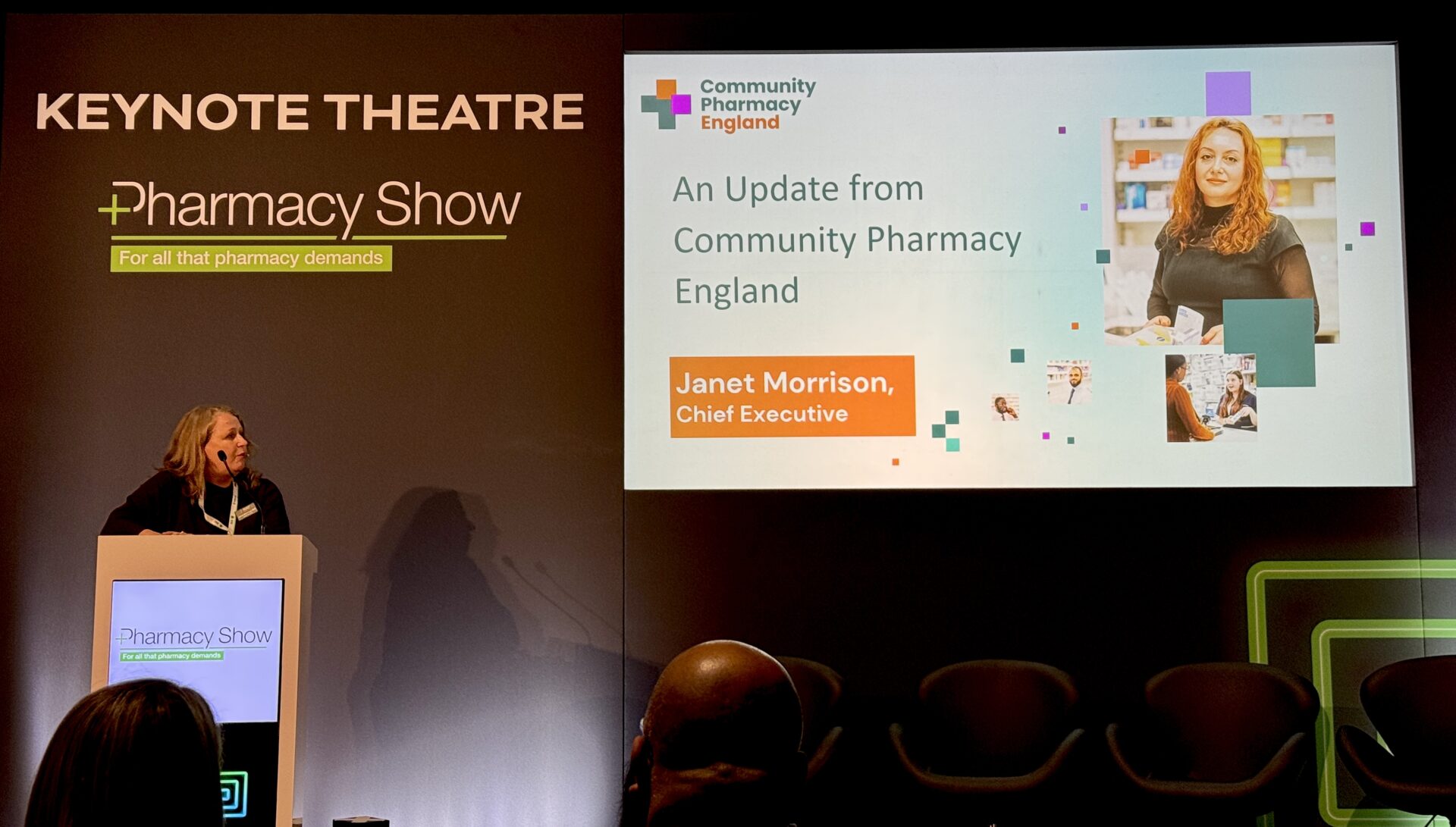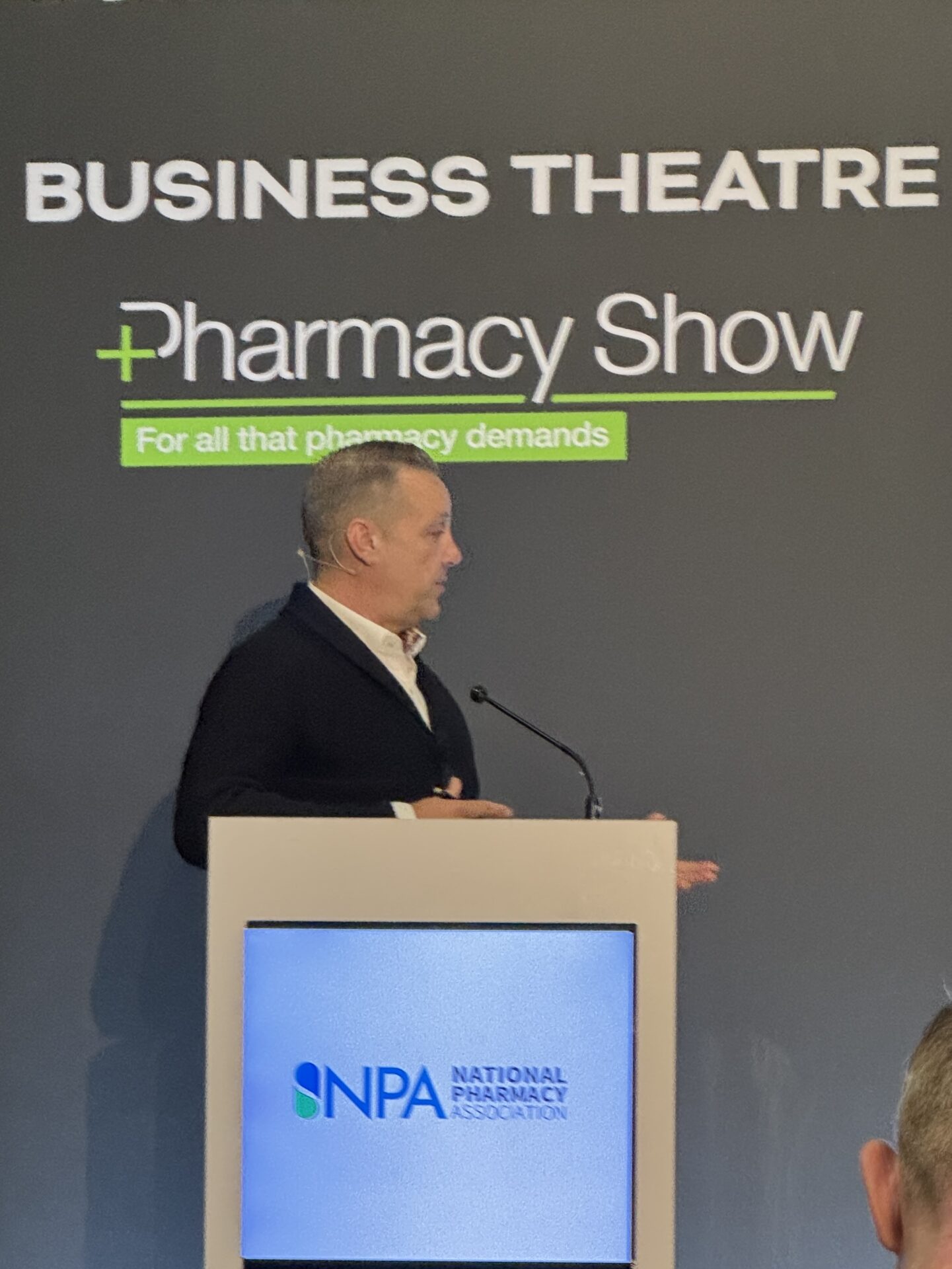Home » The Pharmacy Show 2025

In July 2025, The UK Government published its Fit for the Future: 10-Year Health Plan for England. It was discussed widely at the Pharmacy Show, as it sets out a transformation of the NHS, with community pharmacy positioned as a central pillar of the new care model. The plan is built around three shifts:
Aligning with the Health Plan, a recurring theme was the pharmacy sector’s push for ‘digital first’ solutions. The move from paper-based processes to digital platforms was highlighted as both a necessity, and a challenge.







Service expansion in community pharmacy was a central theme across multiple sessions and discussions. Consumer research presented revealed a willingness of patients to pay for enhanced pharmacy services, provided value and convenience are clear.
The Pathfinder Programme was also discussed. It is a pilot NHS initiative aimed at integrating independent prescribing into community pharmacy clinical services. It now involves over two hundred pharmacies in England exploring independent prescribing. Nearly one third of all pharmacists in England are now qualified independent prescribers. From September 2026, all newly qualified pharmacists there will be independent prescribers on the day of their registration, which will further add to the numbers. This offers a significant opportunity to enhance patient access, optimise medicines use and relieve burden on GPs and hospitals.
The topic of change management was a focus. Getting teams on board, clarifying roles, delegating tasks and ensuring everyone knows their responsibilities are essential for a calm, efficient environment. Marginal gains — such as improving pharmacy layout or optimising script retrieval —can collectively free up significant pharmacist time for patient engagement and new services.
Despite having had electronic prescribing in England since 2009, many pharmacies are still working on paper when dispensing prescriptions. This shows the importance of change management to ensure all pharmacies benefit from the efficiencies of moving to a paperless workflow. This will be something that we will also need to focus on in Ireland, when the requirement to print Healthmail prescriptions is removed in January 2026.
Automation and robotics are becoming increasingly popular, with several vendors of dispensing robots and automated pill packing displaying their products at the Show. Many companies with electronic controlled drug register software solutions also attended and showed the benefits that could be realised in Ireland if legislation were to be changed to allow them to replace the paper-controlled drug registers in use here.
The importance of using all the functionality available on your PMR before seeking new features was stressed, as was the importance of only investing in digital solutions if they will deliver tangible benefits such as a time saving, greater efficiency or improved patient safety.
Enhancements to the NHS App also featured in talks. The NHS is seeking to enhance patient access to a single health record and improve medicine management through the app. One feature which is currently being rolled out is prescription tracking through the app. This enables patients to see in the app if the prescription has been sent to the pharmacy or the prescription is ready for collection. This feature has the potential to greatly reduce the volume of phone calls to pharmacies querying whether their prescription has arrived or if it is ready for collection. When electronic prescribing is rolled out in Ireland in quarter four in 2027 and during 2028, this type of functionality should be available to pharmacies here too.
“The NHS’s 10 Year Health Plan will require hard choices and prioritisation, and there are concerns around future pharmacy funding there.”
Data-driven insights are increasingly central to pharmacy operations. The Show explored how habits and behaviours drive a lot of dispensary issues, and how analysing workflow can release up to 20 hours of pharmacist time per month.
AI is making inroads, with software like Anima triaging patients in GP practices. However, concerns remain about data representativeness, AI hallucinations, and indemnity risks.
The economic climate for pharmacies in England remains challenging, despite the funding increase negotiated by Community Pharmacy England this year. Most of the Single Activity Fee (SAF) for dispensing has been eroded by wage increases, and a large funding gap remains. The NHS’s 10 Year Health Plan will require hard choices and prioritisation, and there are concerns around future pharmacy funding there.
It was evident at the Pharmacy Show 2025 that the pharmacy sector in England is at a crossroads, balancing tradition with innovation, and operational pressures with new opportunities.
Ciaran Mulligan MPSI

Interim Contracts Manager, IPU
Highlighted Articles